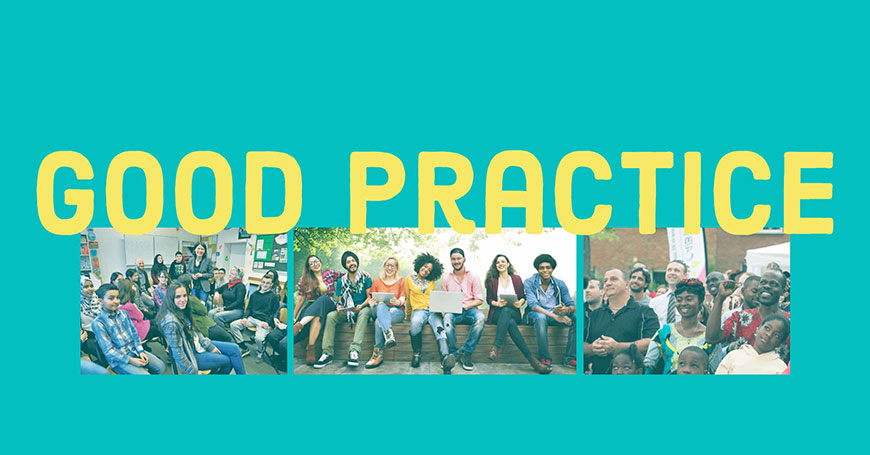Intercultural cities: good practice examples

The first step is the adoption (and implementation) of strategies that facilitate positive intercultural encounters and exchanges, and promote equal and active participation of residents and communities in the development of the city, thus responding to the needs of a diverse population. The Intercultural integration policy model is based on extensive research evidence, on a range of international legal instruments, and on the collective input of the cities member of the Intercultural Cities programme that share their good practice examples on how to better manage diversity, address possible conflicts, and benefit from the diversity advantage.
This section offers examples of intercultural approaches that facilitate the development and implementation of intercultural strategies.
Immigration City Erlangen
Purpose: Revising the relationship between migrants and receiving societies Stimulus/Rationale: There is a popular fallacy that dominates Europe's immigration discourse: understanding immigration...
Barka
Purpose: Barka creates opportunities to return home for people facing homelessness or difficult social and economic situation, and they run a Social Economy Centre, supporting migrants on their way...
Measuring cultural empathy
A sociological study on cultural competences in Ukraine, leading to policy development Melitopol is a city of the Azov region where, for more than 225 years, there has been a harmonious coexistence...
Anti-Rumour Web App
Purpose: A game to raise awareness of rumours and stereotypes that negatively affect coexistence in Bilbao. Rationale: Awareness-raising and the fight against discrimination is a priority line of...
BizFeira - Bilateral overseas business development
Purpose: An online platform - BizFeira - that enhances entrepreneurship and internationalisation through establishing links between local business owners of all backgrounds with the Portuguese...
The Danish Centre for Arts & Interculture (DCAI)
Purpose: The aim of the Danish Centre for Arts & Interculture (DCAI) is to create a national platform that reflects the diversity of Danish society in the cultural sector, by building intercultural...
A Smile of a Child
Purpose: Therapeutic hospitality for refugees Process: Melitopol has taken in very many Internally Displaced Persons (IDP) as a consequence of the troubles in Crimea and Eastern Ukraine. “A Smile...
Close to Culture: Art, music and theatre prevent social exclusion and promote the democratisation of culture
Purpose: Apropa Cultura (Close to Culture) is a network of cultural facilities, such as theatres, concert halls, festivals and museums, whose main purpose is to encourage inclusiveness promoting...
Schilleria Girl´s Café - PolitTalk (Schilleria Mädchentreff)
Purpose: Promotion of the political participation of young women Stimulus/Rationale: Process: The Schilleria Girl´s Café is addressed at girls and young women, most of whom have a migrant...
241FE- 241 Female Entrepreneurship
Purpose: Women are the primary victims of the intertwined causes of conflicts, underdevelopment and migration. To address these issues, in a sustainable and humanitarian way, migrants should be...


